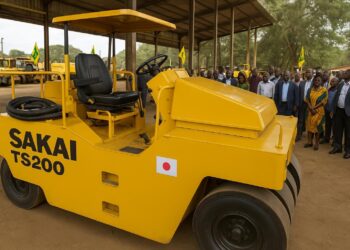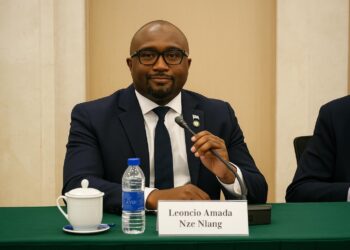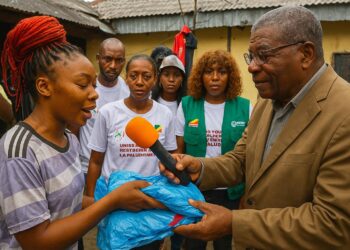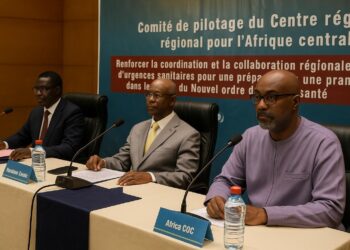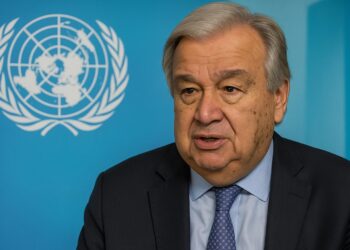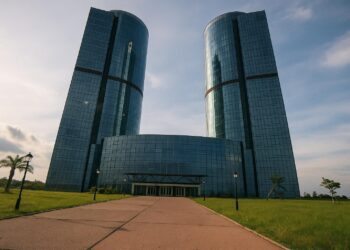A liminal moment at the United States Embassy
When Ambassador Eugene S. Young formally takes leave of Brazzaville this July, the Stars and Stripes over Charles de Gaulle Boulevard will not dip; yet the absence of a Senate-confirmed successor is palpable in diplomatic circles. According to senior officials consulted in Washington and Brazzaville, the Department of State intends to assign an interim chargé d’affaires, a routine but symbolically muted arrangement. Although such interregna are hardly unprecedented, their duration often sets the tone of bilateral expectations. One Congolese interlocutor at the Ministry of Foreign Affairs, requesting anonymity, confided that the transition is viewed with ‘calm curiosity rather than concern’, reflecting confidence that day-to-day cooperation will remain intact.
Protocol yields to strategic triage in Washington
Inside the Beltway, ambassadorial nominations frequently compete with a crowded legislative docket. Sources close to the Senate Foreign Relations Committee observe that Africa postings not deemed crisis-driven may await their turn behind Middle Eastern and Indo-Pacific files. The Trump administration exhibited a comparable pacing; the current administration, while rhetorically committed to African partnerships, still faces an internal prioritisation matrix influenced by the war in Ukraine, supply-chain realignments and domestic political headwinds. Consequently, the African Bureau is expected to lean on senior career officers to maintain momentum in Brazzaville while higher-profile embassies are staffed.
Commercial ties advance beneath the diplomatic radar
In pure economic terms, Congolese hydrocarbons continue to attract American energy service firms, even as European competitors re-enter upstream ventures. The U.S. International Development Finance Corporation has quietly assessed risk-mitigation instruments for downstream gas projects, and Eximbank has signalled conditional interest in infrastructure guarantees. A senior executive at an American independent operating in Pointe-Noire remarked that ‘the absence of a fully credentialed ambassador slows ceremonial elements but not boardroom decisions’. This pragmatic view aligns with trade statistics showing steady, if modest, bilateral goods exchange worth approximately 280 million dollars in 2022 (U.S. Census Bureau, 2023).
Security cooperation retains its bandwidth
On the defence side, the Congolese Armed Forces participate in the annual Exercise Obangame Express, co-hosted by U.S. Africa Command to bolster Gulf of Guinea maritime security. Embassy officers have already drafted next year’s logistics support plans, suggesting that an interim chargé d’affaires will be empowered to sign routine memoranda. Analysts at the Africa Center for Strategic Studies note that continuity in the security portfolio is typically safeguarded through existing Status of Forces Agreements, rendering the ambassador’s chair important for high-level coordination yet non-essential for operational tempo.
Regional optics and great-power choreography
Brazzaville occupies a discreet but pivotal perch along the Congo River. For Washington, maintaining a measured presence counters perceptions of disengagement at a time when Beijing’s Belt and Road investments, Paris’ historical affinity and Moscow’s outreach via private security contractors criss-cross the sub-region. A former U.S. Assistant Secretary for African Affairs argues that ‘leaving only a chargé d’affaires can sometimes telegraph flexibility—an ability to recalibrate swiftly once the geopolitical music changes’. From the Congolese vantage point, President Denis Sassou Nguesso’s government has welcomed diversified partnerships, recently hosting Turkish and Emirati delegations. A low-key American footprint therefore risks neither diplomatic friction nor loss of goodwill.
Forecasting a full envoy and the bilateral agenda ahead
Most observers interviewed expect a nominee to be announced after the U.S. presidential primaries, allowing the White House to bundle several Africa postings for Senate consideration. In the interim, embassy counsellors will advance thematic dialogues on public-health resiliency, green-energy financing and educational exchanges under the Young African Leaders Initiative. Congolese officials emphasise that the policy pipeline—particularly a prospective debt-for-nature swap under discussion with multilateral lenders—could benefit from an ambassadorial imprimatur. Yet they equally underline that institutional channels remain robust.
Thus, the pending appointment illustrates less a rupture than a diplomatic pause, calibrated by Washington’s bandwidth and global exigencies. In Brazzaville, the prevailing sentiment blends patience with pragmatism: files move, phones ring, and protocol plates continue to clatter at evening receptions. The absence of a named ambassador may feel conspicuous to the seasoned watcher, but for practitioners on either bank of the Congo River, substance still outweighs form—at least for now.

































